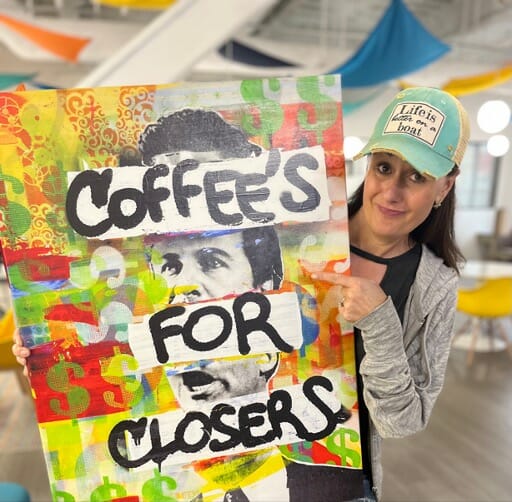 "Coffee is for closers only." When Alec Baldwin insists that Jack Lemmon stop pouring coffee in "Glengarry Glen Ross," it's just the start of a scene that leaves everyone in the room shocked and speechless.
"Coffee is for closers only." When Alec Baldwin insists that Jack Lemmon stop pouring coffee in "Glengarry Glen Ross," it's just the start of a scene that leaves everyone in the room shocked and speechless.
That monologue struck a nerve with moviegoers and salespeople alike. The infamous line still brings us back to that dark office where the real estate salesmen got the lecture of their lives!
When "Glengarry Glen Ross" hit movie theatres 30 years ago, it's too bad those hardened salesmen didn't know about the power of storytelling to increase closing ratios. They could be drinking a lot more coffee.
What drives my desire to help clients communicate more effectively is the fact that people make decisions based on emotion. Human beings are wired to make decisions from a place of emotion and back that decision up with logic.
Consequently, an effective way to improve closing ratios, whether you're speaking one on one, in a group setting, or selling online, is by appealing to the emotional side of the brain.
If your closing ratio is not where it should be, one of the first places to look is at the type of information you are providing in your sales presentation. Listing facts or technical jargon is not going to speed up the process or improve your closing ratio.
This is especially true if the solutions you offer are complex. That's when you'll want to weave in some elements that create emotional connection. One powerful way to do that is through storytelling.
Before you start telling stories, it's critical to realize that they have a job to do. When you strategically choose the right stories, find the right angle for your stories, and craft them in a masterful way, they literally become part of your business development team.
Two types of stories I recommend for sales conversations are the Personal Brand WHY Story and the Desire story. Each serves a unique purpose and can build on the other to help you close business more efficiently.
A Personal Brand WHY Story tells prospects and clients why you do what you do and why you care about them. It's a story that humanizes you versus giving a lengthy list of your credentials. Learn how your personal story persuades and influences.
A Desire story is one you share about a client who got great results working with you. Think of it as a before-and-after snapshot about a client. Following a specific storytelling structure, its job is to evoke desire in the hearts of your ideal clients to achieve those same results. This story also allows you to display empathy when warranted and sell yourself without sounding too salesy.
If the person knows you and trusts you from the why story, and then you follow up with the desire story demonstrating great results for people like them, it will affect your closing ratio in a dramatic way.
I'd love to talk with you (over a cup of coffee) about how you can use your stories to improve your closing ratios.






